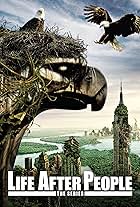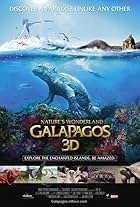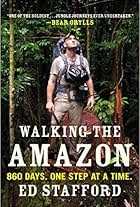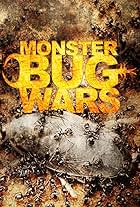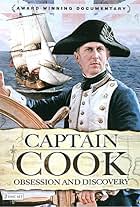Ricerca avanzata
- TITOLI
- NOMI
- COLLABORAZIONI
Filtri di ricerca
Inserisci la data completa
a
o inserisci solo aaaa o aaaa-mm di seguito
a
a
a
Escludi
Include solo titoli con gli argomenti selezionati
a
In minuti
a
1-50 di 135
- What would happen to planet earth if the human race were to suddenly disappear forever? Would ecosystems thrive? What remnants of our industrialized world would survive? What would crumble fastest? Life After People is a television series on which scientists, structural engineers, and other experts speculate about what might become of Earth should humanity instantly disappear.
- Explore the distinct habitats and wildlife of the Galapagos, an archipelago that revolutionized our understanding of nature and continues to captivate naturalists worldwide.
- This exploration of the planet's most breathtaking natural events follows vast migrations, huge ocean convergences, powerful weather systems and mighty floods.
- The story of Ed Stafford's 2 1/2 year journey to become the first man to walk the length of the Amazon River.
- Monty Halls explores Australia's Great Barrier Reef, one of the natural wonders of the world and the largest living structure on our planet. Monty explores its full 2000-kilometre length, from the wild outer reefs of the Coral Sea to the tangled mangrove and steaming rainforest on the shoreline; from large mountainous islands to tiny coral cays barely above sea level; from the dark depths of the abyss beyond the reef to colourful coral gardens of the shallows.
- Witness fierce predators battle in a gladiatorial arena, unleashing stings, spikes, and venom. Losers face a gruesome fate - being devoured alive.
- A nature documentary about a bird's-eye view of the natural world, joining the journeys of snow geese, cranes, albatrosses, eagles and other birds across six continents. Beginning in North America, snow geese face their biggest predator, pelicans glide under San Francisco's Golden Gate Bridge, bald eagles in Alaska swoop among brown bears, and on the Great Plains, cowbirds dive under the feet of fighting bison.
- It tells the story of the life of Captain James Cook, the greatest explorer in history who traveled to Australia and New Zealand. His three voyages took the frontiers of the British Empire to the ends of the Earth.
- In questo film viene narrata la migrazione dei dinosauri durante l era glaciale.
- Huw Edwards presents this history of Wales, showing the country in ways it's never been seen before. From prehistoric times, to power struggles with the barons, and England, through to the industrial revolution and today this history is comprehensive and is a compulsive viewing.
- An underwater odyssey showcasing majestic humpback whales, massive blue whales on extraordinary feeding expeditions, and southern right whales' remarkable anatomical features.
- What happens behind the scenes at the Natural History Museum? Why is it important to preserve the 70 million specimens in the collections? And how relevant is the research of Museum scientists to today's challenges, like biodiversity loss and the spread of tropical disease? This series will answer these questions.
- This is an exploration of the exciting, diverse and unique wildlife that inhabits the dramatic landscapes of the vast South American continent. It's a land of great extremes, stretching from the Antarctic to the Equator. It has the planet's greatest river system, longest mountain chain, biggest and richest rainforest and driest desert. Using the latest camera techniques, including infrared night-vision cameras, rarely seen animals are revealed, whilst a specialist aerial cameraman soars over the continent, revealing an entirely new perspective on its varied and dramatic landscape.
- Archaeologist and writer Neil Oliver presents a series on the golden age of exploration, charting the routes of contact that drew together the farthest reaches of the world. Neil Oliver follows in the footsteps of four Scottish explorers who planted ideas rather than flags - ideas that shaped the modern world we know today.
- Stephen Fry chooses and presents his 100 all-time favourite gadgets that have revolutionised our individual and collective lives, from hi-tech to historical, the domestic to the downright dumb. From curling tongs to the corkscrew, the typewriter to the trouser press, the iron to the iPod, the show is an entertaining mix of cutting-edge technology, misty-eyed nostalgia and the fascinating insights for which Stephen Fry is renowned.
- Eminent classical historian Robin Lane Fox embarks on a journey in search of the origins of the Greek myths. He firmly believes that these fantastical stories lie at the root of western culture, and yet little is known about where the myths of the Greek gods came from, and how they grew. Now, after 35 years of travelling, excavation and interpretation, he is confident he has uncovered answers.
- British celebrity chef Hugh Fearnley-Whittingstall reveals how people can use only three ingredients to cook a tasty and healthy meal. He shares his tricks with other chefs and prepares delicacies.
- A two-part documentary looking at the awe-inspiring world of animal swarms. The latest camera techniques take viewers to the heart of the action, revealing how the creatures view the world around them, while footage from camcorders and mobile phones captures the impact they can have when these alien armies collide with human life.
- An explosive powder called "atmos" leads to a frictional relationship between Conor, who believes it will be used to destroy them all, and Vorgeen, the leader of a neighbouring tribe who wants to create even more deadly weapons in order to protect his people.
- The first dangerous step into a hazardous world. From egg laying to live-bearing mammals have adopted an extraordinary variety of techniques to give birth, but the release of an egg to the safe delivery of an infant is merely one step in the great journey through life.
- The Pacific breeds the biggest and most powerful hurricanes in the world. So far, the 7 million inhabitants of Hong Kong have escaped a direct hit. But a slight change in weather will send an emergency coordinator scurrying through the streets to make sure her city is safe while the super typhoon sets its sights on the island.
- 1983– 50mEpisodio TV8,4 (13)The Spectacled Bear lives in Peru. Little is known about the habits of this elusive creature, and as narrator Stephen Fry reveals, many of our assumptions were wrong. For years they were thought to be gentle vegetarians, but the latest studies reveal a new and alarming side to this endangered bear.
- 2009– Episodio TV6,5 (10)We investigate the impact of swarms of creatures on the population. Highlights include killer bees mounting an attack on a football match in Costa Rica, a sea of mice raiding farms in South Australia and 10 million starlings flying over Rome.
- 2009– Episodio TV4,3 (9)In the episode we look at how animals swarming together create a collective intelligence. Huge shape-shifting shoals of herring use swarm intelligence to detect predators. Billions of alkali flies form a rolling wave to evade the gaping mouths of gulls. Millions of free-tailed bats form a living tornado and still manage to keep from colliding with each other.
- The south coast of England was the home of movies long before a frame was shot in Hollywood, thanks to long hours of daylight and glamorous London actors holidaying by the sea. Neil Oliver tries his hand at directing his own silent movie. Alice Roberts re-lives the glamour days of the hovercraft and on the Isle of Wight, we go in search of dinosaur footprints which prove the island has been on an epic voyage heading north from tropical climes 135 million years ago.
